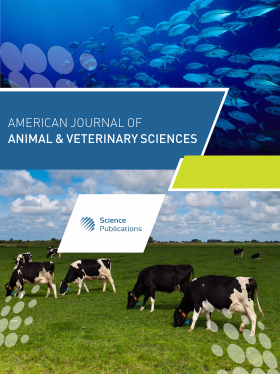Ameliorative Impacts of Tribulus terrestris Against Ivermectin-Induced Hepato-Renal Toxicity in Rabbit: Pharmacological and Histopathological Study
- 1 Animal Health Research Institute-El-Mansoura, Egypt
- 2 Suez Canal University, Egypt
Abstract
The current work aimed to investigate the protective effects of Tribulus terrestris extracts against ivermectin-induced hepatic and renal toxicity in male rabbit. Selenium plus vitamin E was used as a comparative standard drug to evaluate the efficacy of Tribulus terrestris extract on some hematological parameters, kidney and liver enzymes as well as associated histopathological changes. This work was carried out on thirty male New Zealand rabbits for two successive months. Animals were divided into five groups of six rabbits each. The 1st group was designated as the negative control; the 2nd group was subcutaneously injected with ivermectin (IVM) (200µg/kg/month). The 3rd group was treated daily with selenium plus vitamin E (Se + vit E) after IVM injection. The 4th and 5th groups were treated with Tribulus terrestris Ethanol Extract (TTE) and Tribulus Terrestris Ethyl Acetate extract (TTEA) respectively at a dose of 5mg/kg/day after IVM injection. Hematological results showed significant (P<0.05) increases in RBCs, hemoglobin and hematocrit percentage after both TTE and TTEA extracts treatment compared to IVM and Se + vit E groups. There was a significant decrease in AST activity in TTE and Se + vit E treated groups (17.17±0.95 and 16.50±0.76 U/L) and non-significant decreased activity in TTEA group (18.83±0.6 U/L) compared with IVM injected group (21.5±1.31 U/L). Moreover, there were non-significant (P<0.05) changes in both serum creatinine and urea concentrations in IVM, TTE, TTEA and Se + vit E treated groups. Regarding to histo-architectural changes, TTE treated group revealed mild degenerative changes in the renal parenchyma with congested blood vessels, meanwhile, the TTEA treated group revealed few degenerative changes in hepatocytes. This study concluded that, Tribulus terrestris extracts could be used as an effective treatment to ameliorate the ivermectin-induced renal and hepatic toxicity in rabbits.
DOI: https://doi.org/10.3844/ajavsp.2017.8.16

- 5,974 Views
- 5,038 Downloads
- 15 Citations
Download
Keywords
- Tribulus terrestris
- Ivermectin
- Selenium
- Vitamin E
- Hepato-Renal Toxicity
